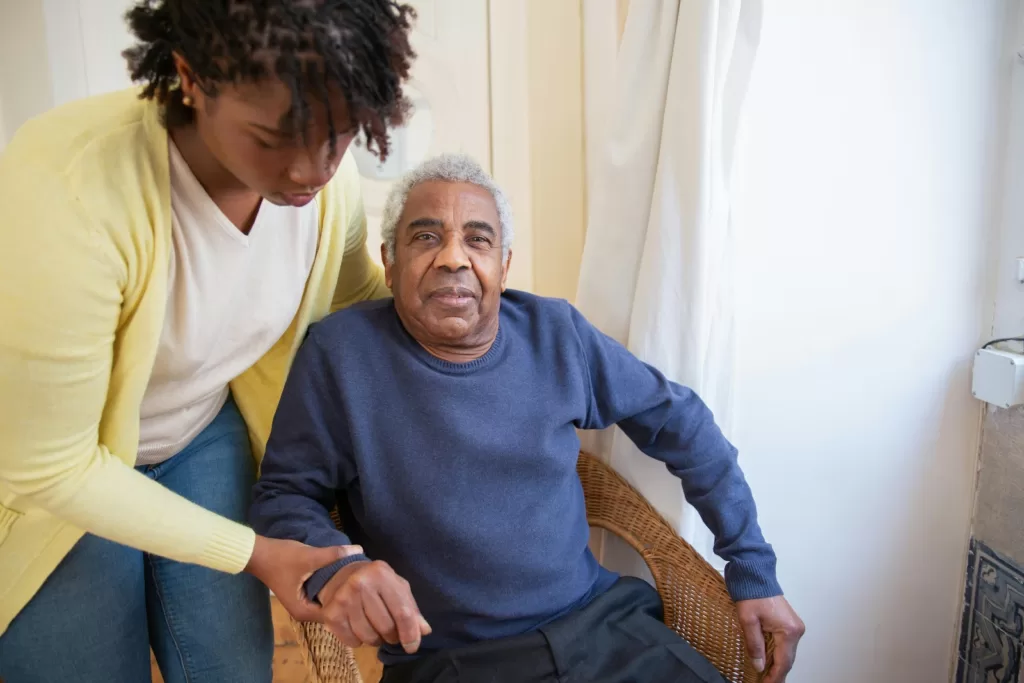Updated on September 14, 2025

What are home care packages?
Home Care Packages are government-subsidised programs designed to help eligible individuals aged 65 and over (or 50 and over for Aboriginal and Torres Strait Islander people) remain in their own homes while receiving necessary care and support services.
These packages come in four different levels, each providing different amounts of funding based on your assessed care needs.
The beauty of Home Care Packages lies in their flexibility. Unlike traditional aged care services that offer predetermined services, packages allow you to choose how to spend your allocated funds based on your individual needs, preferences, and circumstances. This consumer-directed approach puts you in control of your care decisions.
What can I spend my Home Care Package on?
Personal care services
Personal care includes assistance with daily living activities that help maintain your health, hygiene, and well-being. You can use your package funding for help with showering, dressing, grooming, toileting, and medication management. Personal care also extends to mobility assistance, helping you move safely around your home and community.
Many package recipients find that having professional support with these intimate daily tasks not only ensures their safety and well-being but also provides peace of mind for family members who may be concerned about their loved one’s ability to manage independently.
Domestic assistance
Maintaining a clean, safe, and comfortable home environment is important for independent living. Your Home Care Package can cover a wide range of domestic services, including regular house cleaning, laundry services, bed making, and general tidying. You might also use funds for more intensive cleaning tasks like window cleaning, carpet cleaning, or seasonal deep cleaning.
Beyond basic cleaning, domestic assistance can include help with meal preparation and planning. This might involve a support worker preparing fresh meals in your home, batch cooking for the week ahead, or simply assisting with grocery shopping to ensure you have nutritious food options available.
Nursing and allied health services
Your package can fund registered nursing services for wound care, medication administration, health monitoring, and management of chronic conditions. This professional health support can be key in preventing hospital admissions and maintaining your overall health status.
Allied health services represent another valuable use of package funds. You might access physiotherapy to maintain mobility and strength, occupational therapy to adapt your home environment for safety and accessibility, or speech therapy if you’re recovering from a stroke or managing conditions that affect communication or swallowing.
Transport and social support
Social isolation is a major concern for many older Australians, and Home Care Packages recognise the importance of maintaining community connections. You can use your package funding for transport to social activities, medical appointments, shopping trips, or visits with family and friends.
Beyond transport, packages can fund social support services that help you engage with your community. This might include accompanied outings, assistance to attend community groups or religious services, or support to maintain hobbies and interests that are important to your well-being.
Equipment and home modifications
Creating a safe and accessible home environment often requires specialised equipment or modifications. Your Home Care Package can fund a wide range of equipment, including mobility aids like walking frames or wheelchairs, bathroom safety equipment such as grab rails and shower chairs, and daily living aids that help with tasks like dressing or cooking.
Home modifications represent a significant investment in your long-term independence and safety. Depending on your package level and specific needs, you might fund modifications like ramp installation, bathroom renovations for accessibility, improved lighting, or security enhancements that help you feel safe and secure in your home.
Technology and communication
Your package can fund technology solutions like personal emergency response systems, medication reminder devices, or tablet computers that help you stay connected with loved ones. Telehealth equipment and internet connections might also be funded through your package, enabling you to access medical consultations and health monitoring services from the comfort of your home.
Respite care
Caring for yourself, or being cared for by family members, can be physically and emotionally demanding. Home Care Packages can fund respite care services that provide temporary relief for primary caregivers or simply give you a break from your usual routine. Respite might involve a support worker spending time with you while your family caregiver takes a break, or it could fund short-term accommodation in a respite facility if you need more intensive support temporarily.
What cannot be funded by Home Care Packages?
Packages cannot fund ongoing accommodation costs like rent or mortgage payments, utility bills, or council rates.
General household items like groceries for the whole household, clothing, or entertainment that isn’t directly related to your care needs are also excluded.
Medical treatments that should be covered by Medicare, such as GP visits or most prescription medications, cannot be funded through your package.
Additionally, packages cannot pay for services that benefit other household members unless they’re directly related to your care needs.
Making the most of your package
To maximise the value of your Home Care Package, it’s important to regularly review your care plan with your provider. Your needs may change over time, and your package should adapt to reflect these changes. Consider both your immediate needs and longer-term goals when deciding how to allocate your funding.
Many successful package recipients find that investing in preventive services like physiotherapy or occupational therapy assessments can help them maintain their independence longer and potentially avoid more costly interventions later. Similarly, home modifications might represent a significant upfront cost but can provide years of increased safety and independence.
Don’t hesitate to discuss your options with your care coordinator or provider. They can help you understand how different services might benefit you and assist in prioritising your spending to achieve the best outcomes for your individual situation.
FAQs
Can I change how I spend my Home Care Package funding?
Yes, you can adjust your services and spending priorities as your needs change. However, it’s important to discuss any changes with your care coordinator to ensure your care plan remains appropriate and that any new services are properly arranged. Some changes might require updates to your formal care plan, which should be reviewed regularly anyway.
What happens to unused funds in my Home Care Package?
Unused funds generally cannot be carried over indefinitely or withdrawn as cash. Most providers operate on a monthly budget cycle, and while some small amounts might carry forward, the expectation is that you’ll use your allocated funding for appropriate care services. It’s better to use your full entitlement for services that support your wellbeing rather than leaving funds unused. Discuss with your provider how to best utilise your full package value.
Can family members be paid to provide care through my Home Care Package?
In most cases, family members cannot be directly employed and paid through your Home Care Package to provide your care. The packages are designed to purchase professional care services from qualified providers. However, there may be exceptions in remote areas where professional services aren’t available, or for specific cultural requirements. Your provider can advise whether any family arrangements might be possible in your particular circumstances.
How do I know if I’m getting good value from my Home Care Package spending?
Good value means your package is helping you achieve your personal goals for independence, health, and well-being. Regular care plan reviews with your provider should assess whether your current services are meeting your needs effectively. Consider whether you’re able to remain safely in your home, maintain your health and social connections, and enjoy a reasonable quality of life.
If you’re concerned about value or service quality, discuss this with your provider or consider seeking advice from advocacy services.
Conclusion
Home Care Packages offer remarkable flexibility to support your individual needs and preferences for aging in place. The key to success with any Home Care Package is open communication with your provider, a clear understanding of your options, and regular assessment of whether your current arrangements are helping you achieve your personal goals for independent living. With the right approach, your Home Care Package can be a powerful tool in maintaining the lifestyle and independence you value most.
RELATED ARTICLES
20 Things Not To Say To Your Aging Parents
Social Security Benefits in Australia
Hospital to Home: How Disability Support Can Aid Transition and Recovery



